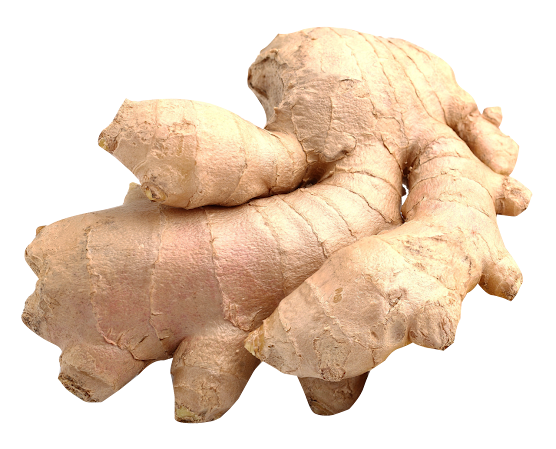Health Benefits of Ginger-the Nature's Medicine
Note: Friends, if you are comfortable in reading this article in any other language, please change the language from the translate button on the top of this article.
 |
| Asian cuisines frequently include ginger as a flavoring agent in soups, sauces, and curries |
Overview
Friends, ginger has really magical benefits. It is a blooming plant with the scientific name Zingiber officinale and is used as a spice.
It can be ingested in a variety of forms, including fresh, dry, powdered, oil, and juice.
Asian cuisines frequently include ginger as a flavoring agent in soups, sauces, and curries. Additionally, it's a component of alcoholic and sweet treats like wine, ginger beer, and ginger cookies.
Among ginger's many health advantages include its potential to ease pain and nausea, enhance respiratory health and lessen flatulence.
Additionally, ginger helps enhance appetite, strengthen the immune system and improve bone health.
This hot root can help prevent obesity and lessen the discomfort associated with menstruation irregularities.
Nutrition of Ginger
The main reason ginger has health advantages is that it contains gingerol, an active ingredient. It is also abundant in protein, dietary fiber, and carbs, according to the USDA Food Data Central.
It contains sodium, iron, potassium, magnesium, phosphorus, and zinc in terms of minerals. Vitamin C, folate, vitamin B6, riboflavin and niacin are some of its vitamins.
It contains a variety of anti-inflammatory and antioxidant substances including salicylate, beta-carotene, capsaicin and curcumin.
Additionally, ginger contains active substances such as shogaol, zerumbone, terpenoids, flavonoids, paradol, and zingerone that have numerous health advantages.
Health Benefits of Ginger
- Ginger is Nature's Medicine and has many health benefits.
- Ginger contains magnesium, manganese, potassium, copper, vitamin B6 and many other nutritious elements.
- Ginger helps fight Arthritis by improving the flexibility of bones and muscles. Its anti-inflammatory qualities are especially helpful for persons with arthritis. Ginger has anti-inflammatory ingredients
- Ginger is good to save you from motion sickness with no side effects. Ginger has long been used as an alternative medication to prevent motion sickness. The mechanism of its action, however, is unknown.
- Ginger ameliorates nausea associated with motion sickness by preventing the development of gastric dysrhythmias and the elevation of plasma vasopressin.
- Ginger helps in respiratory problems in colds, coughs and asthma. Ginger extracts may be able to treat asthma by influencing the main cells responsible for the symptoms in the airways, according to case-control research involving 25 asthma sufferers.
- Ginger helps in relieving nausea and vomiting caused after chemotherapy.
- The predominant side effect of chemotherapy for about 75% of patients is considerable nausea.
- Ginger improves digestion by stimulating digestive juices. A naturally occurring substance in the ginger root called gingerol helps gastrointestinal motility-the speed at which food leaves the stomach and moves on to the next stage of the digestive process.
- Ginger consumption promotes effective digestion, reducing the amount of time food remains in the gut.
- Ginger helps in preventing migraine by relieving pain. Ginger has been found to reduce both pain and nausea and has therefore also been studied in the context of migraine headaches.
- Ginger helps fight ovarian cancer. In an investigation on the effect of ginger on tumor cell growth and modulation of angiogenic factors in ovarian cancer cells in vitro, it was found that Ginger slows the growth of ovarian cancer cells and controls the release of angiogenic factors.
- Ginger lowers cholesterol levels. A study found that taking 5 grams of raw ginger daily for three months dramatically lowered LDL cholesterol, while also having mild effects on total cholesterol and body weight in hyperlipidemic patients.
- Ginger prevents blood clotting by making blood thin. Spices with anti-inflammatory properties like ginger may prevent blood clotting. It contains salicylate, a natural acid.
- Ginger helps in fighting colds and flu. Ginger has a long history of use as a herbal treatment for colds. Its therapeutic qualities can lessen swelling and ease a sore throat.
- Additionally, fresh ginger may aid in preventing cold virus infection. Ginger can be consumed as a tea, drink or lozenge.
- Ginger can be included in meals or smoothies. A common method of relieving sore throat discomfort is mixing ginger with honey and other anti-inflammatory substances.
How to Prepare Ginger Tea?
- Drinking Ginger tea daily is extremely good for your health.
- To prepare ginger tea, take some grated or sliced ginger roots equivalent to half a spoon.
- Boil a cup of water. As the water starts boiling, add the ginger roots.
- Don't boil more and cover it with a lid for five minutes. Mix to it a spoonful of honey and/or lemon juice and drink it warm.
- Ginger contains vital minerals magnesium, manganese, copper, potassium and vitamins E, C and A.
- Ginger lowers blood sugar levels in people with type 2 diabetes.
- It improves the digestive system and soothes the stomach.
- Taking it early morning before meals helps in weight loss and keeps you away from overeating.
- Ginger tea balances cholesterol levels and reduces the risk of heart disease.
- It keeps you hydrated for a long time as you know our body contains about 70% of water.
Who should avoid taking ginger tea?
Negative effects
- digestive discomfort
- heartburn
- diarrhea
- gas

Comments
Post a Comment